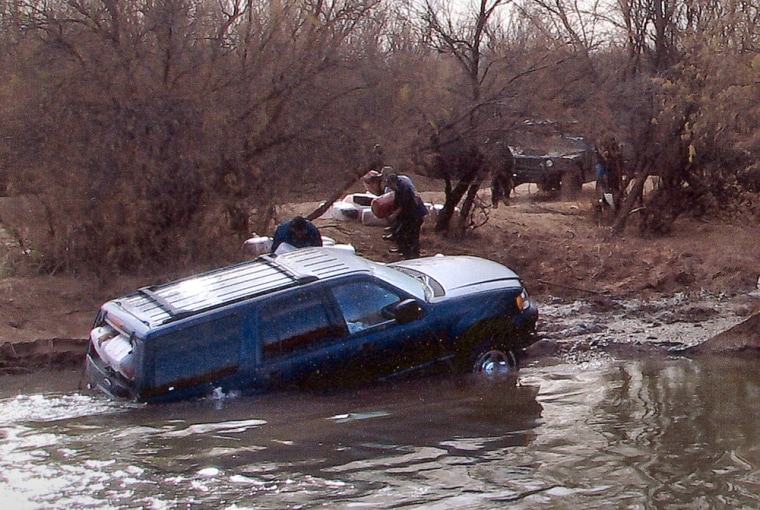WASHINGTON -- Armed men in Mexican military uniforms have illegally crossed into the United States to provide cover for drug smugglers, and have fired upon U.S. Border Patrol agents on several occasions, a congressional panel was told Tuesday.
Border Patrol Union President T.J. Bonner detailed three incidents since 2000 in which U.S. agents were chased and fired upon by what he characterized as Mexican soldiers operating inside U.S. borders. Bonner testified before the House Homeland Security Investigations Subcommittee on Tuesday.
The Department of Homeland Security said there have been 231 documented incursions by Mexican military and law enforcement personnel into the U.S. since 1996.
“There is little doubt that the majority of these incidences are accidental,” said Rep. Michael McCaul, R-Texas., chairman of the Security Investigations Subcommittee. “However, there are several reports of intentional violations of U.S. sovereignty by groups, often smuggling hundreds of pounds of drugs, which appear to be associated with members of the Mexican military or police forces,” McCaul said.
An incident last month in Hudspeth County, Texas, along the border east of El Paso, pushed the issue of alleged Mexican military incursions into the national spotlight. “It was the straw that broke the camel’s back,” McCaul said.
On Jan. 23, a group of Texas deputy sheriffs, acting on a tip, intercepted a group of drug smugglers and were surprised to find what they believed to be Mexican soldiers with automatic weapons and a military vehicle providing armed security.
When confronted by the deputies, the drug smugglers raced back across the border while men in Mexican military uniforms, driving a Humvee, “took up a defensive position” that Hudspeth County Sheriff Arvin West described as a "military maneuver."
When one of the vehicles carrying drugs got stuck in the river, the uniformed men fanned out and took up protective positions as others unloaded the marijuana, West testified. When the drugs were unloaded, the truck was set on fire “and still sits in the river where it burned,” West said.
Mexican officials said Friday that, after an initial investigation, none of its military were involved in the episode. A State Department official testifying Tuesday said that a separate U.S. investigation is still being conducted.
Nothing unusual
Mexican soldiers caught inside U.S. boundaries “isn’t a new phenomenon,” said David Aguilar, chief of the U.S. Border Patrol. Although the Mexican military has an “internal policy” that states they won’t operate within about two miles of the U.S., that policy is routinely violated or simply ignored, he said. “We often spot them” near or inside U.S. borders, Aguilar said.
And on several occasions the U.S. has chased, apprehended and even detained members of the Mexican military, Aguilar said during his testimony. However, the U.S. has no concrete evidence that the Mexican military is in any way involved in drug smuggling, Aguilar was quick to point out.
“However, we address these (incursions) as the serious criminal acts that they are, and these cases are actively pursued,” Aguilar said.
Union president Bonner asked Congress to treat the issue with more seriousness because the violence was widespread, leading to a “growing problem of armed incursions across the southwest border of the United States by current and former Mexican soldiers and law enforcement officers.”
Bonner also urged the subcommittee members to hold Mexico accountable as well for not doing enough on its side of the border to help stem the problem.
The violence is escalating even as state and federal border crackdown initiatives take hold, law enforcement officials told the panel Tuesday.
Drug smugglers have moved to sophisticated techniques and increasingly lethal weaponry, including machine guns, said West. “And I’m afraid the situation will soon turn explosive, literally,” he said. “How much longer is it going to be before the drug cartels start using explosives?” he said.
